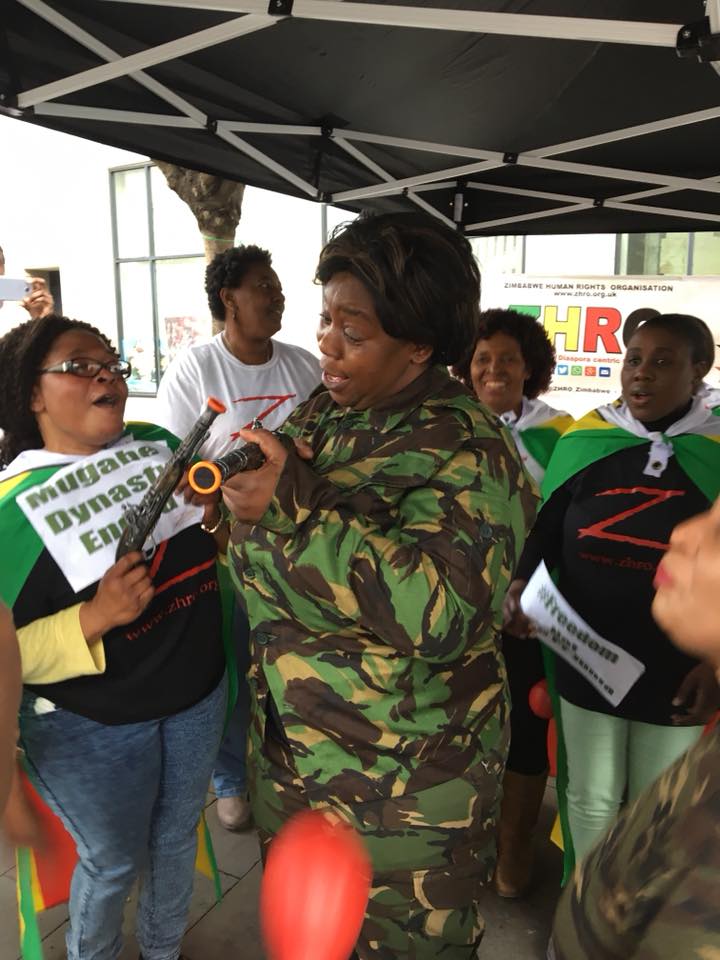
The military intervention in Zimbabwe is a result of power struggle within Zanu-Pf. It indicates the end of the Mugabe era who has dominated Zimbabwe’s political stage for nearly 4 decades.
The hope for a democratisation process may be giving Zimbabweans some cause for optimism, but transformative authority is yet to be seen.
The military ignited a flurry of activity on social media after it seized control of the Zimbabwe Broadcasting Corporation (ZBC). It left Zimbabweans across the world speculating as to what was actually taking place. However it is now clear that we are witnessing a special form of Zanu-Pf internal politics that require guns to aid persuasion.
This evokes the question of whether human rights can actually be restored after the ‘coup’
The Zimbabwe Human Rights Organisation (ZHRO) Wednesday vigil called for the overthrow of a dictatorship to be followed by a democratisation process.
It has warned that the military take over in Zimbabwe does not mean a regime change - in other words deposing Mugabe without overthrowing the ruling Zanu-Pf - may result in the replacement of a dictatorship with another dictatorship.
Whilst the the subsequent military takeover of government seems to be welcome all over the world, we must remember that Zimbabweans have been disenchanted with the high degree of corruption, human rights abuses and economic mismanagement perpetrated by the same people.
A few weeks ago ZHRO symbolically removed Mugabes portrait from the Zimbabwe embassy in London. The members also burned the portrait.
These results are typically concerned with the replacement of the previous leader, oligarchy or political system with a new one.
The Human rights group note with concern that the military’s response to Mugabe’s purging is not to initiate a new political system but to replace him with another corrupt oligarch.
Many Zimbabweans thought that general Constantino Chiwenga was going to take an extreme step to overthrow the regime that he belongs to. The Lacoste frustrations, and the firing of Emerson Munangagwa seem to have served as a provocative and legitimate mechanism of the coup. Chiwenga’s statement shows that it was largely caused by the political ostracism of the liberation war veterans and the marginalisation of the Lacoste faction.
If criminals surrounding the president was the trigger,
why did the general chose to act now after so many years of corruption?
The military intervention was precipitated by the rise of Grace to gain prominence as a political force and her consequent resort to firing the VP as a means of self positioning.
The seed of purging, according to this view, was inherent within Zanu-Pf reflecting shrewdness not ballots attitude to politics. The statement can be seen as a reaction.
Such a military intervention does not represent a legitimate political order, but rather, it is a product of the military’s own corporate and personal interests.
The general will gain an increase in status and other material rewards.
“Zimbabwean should remember that this is Zanu-Pf trying to clean itself off one faction- G40 - therefore it is not a democratisation process yet. The opposition must now use this opportunity to push for the electoral reforms necessary for a free and fair election” said ZHRO chairperson Chipochedenga Parirenyatwa
“The essence of this ‘coup’ was to get rid of Grace Mugabe and install Emmerson Mnangagwa therefore there is a major omission, corruption, which remains a threat to a free and fair elections” said the Vigil Coordinator Sarah Bayisai.
Speaking on an interview with Channel 4 news, ZHRO vice chairman Alfredy Mukuvare said “
I have mixed feelings in relation to what has been happening. They are the same people who has been in power for the last 37 years. General Chiwenga once said the office of the president will not be occupied by people with no military credentials. My fear is they are still the same people till they guarantee freedom of the press and free elections I still have reservations. We wait and see for its too early. As human rights activists we will continue to fight for freedom and justice. A country free of nepotism, dictatorship, cryonism and autocratic rule”
